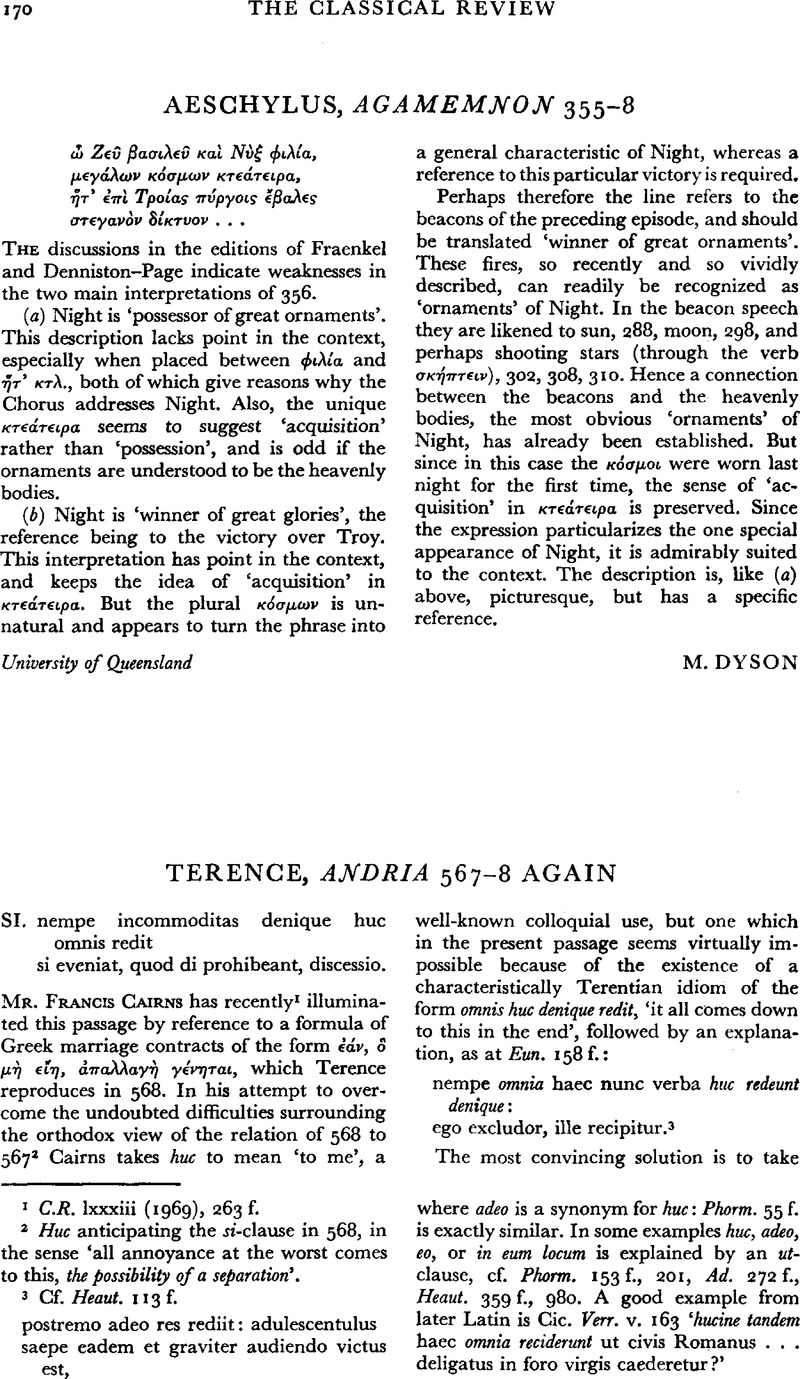Article contents
Terence, Andria 567–8 again
Published online by Cambridge University Press: 27 February 2009
Abstract

- Type
- Review Article
- Information
- Copyright
- Copyright © The Classical Association 1971
References
1 C.R. lxxxiii (1969), 263 f.
2 Huc anticipating the si-clause in 568, in the sense ‘all annoyance at the worst comes this, the possibility of a separation’.
3 Cf. Heaut. 113f.
postremo adeo res rediit: adulescentulus
saepe eadem et graviter audiendo victus
est,
where adeo is a synonym for huc: Phorm. 55 f. is exactly similar. In some examples hue, adeo, eo, or in eum locum is explained by an ut-clause, cf. Phorm. 153 f., 201, Ad. 272 f., Heaut. 359 f., 980. A good example from later Latin is Cic. Verr. v. 163 ‘hucine tandem haec omnia reciderunt ut civis Romanus … deligatus in foro virgis caederetur?’
- 1
- Cited by


